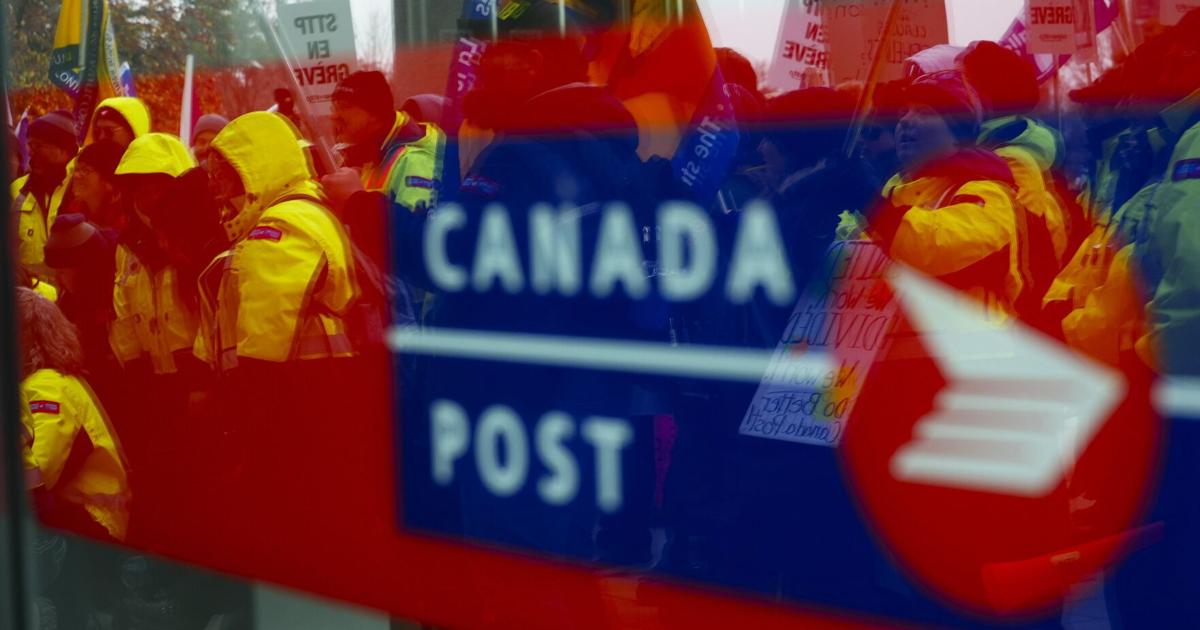Just hours before 55,000 Canada Post workers could be back on strike, there are no talks scheduled between the Crown corporation and the union representing its employees, and the two sides are trading public potshots.
Members of the Canadian Union of Postal Workers could be back on the picket line as of 12:01 a.m. Friday.
Thursday morning, Canada Post said CUPW hadn’t officially responded to a contract offer presented Wednesday, and said customers have already started bailing in anticipation of another work stoppage.
“Canada Post has already seen parcel and mail volumes decline significantly as customers prepare for another labour disruption. We remain hopeful that negotiations can resume,” the Crown corporation said in a written statement. “Further delays or another strike would have a major impact on employees, small businesses and the millions of Canadians who rely on the postal system.”
Late Wednesday evening, CUPW criticized Canada Post’s refusal to accept a two-week truce so the union could take a closer look at Wednesday’s offer, and said the Crown corporation was negotiating in bad faith.
“Reviewing legal wording takes time and careful evaluation. We need to properly assess the offers to ensure they respect the needs of postal workers. The stakes couldn’t be higher,” the union said in an emailed statement.
The union said the Crown corporation made details of its contract offer public even before giving it to CUPW negotiators.
“Today’s action by Canada Post is yet further evidence of its lack of good faith as a bargaining partner,” the union said.
Wednesday’s four-year contract offer includes the creation of new, part-time carrier job categories to help Canada Post extend parcel delivery to weekends, as well as the use of “dynamic routing” at 10 mail-sorting facilities. Dynamic routing means carriers could see their routes shift daily to accommodate changes in volume.
Canada Post said the offer also includes total wage increases of 13 per cent for existing employees, with a six per cent increase in the first year, followed by increases of three, two and two per cent.
The offer came days after veteran mediator William Kaplan delivered the official report from his Industrial Inquiry Commission to the federal government, including Patty Hajdu, minister of jobs and families, and John Zerucelli, secretary of state for labour.
Kaplan’s report said Canada Post was effectively insolvent, and suggested the use of community mailboxes, the elimination of home delivery except for parcels, and getting rid of some post office locations and replacing them with franchises.
Kaplan also suggested expanding parcel delivery to seven days a week, with the use of part-time employees.
More to come.



